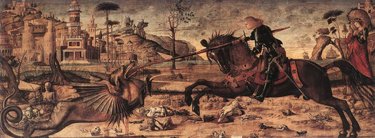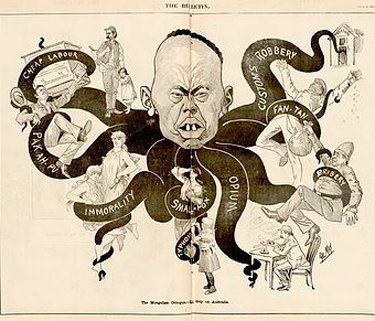
Silver and gold pocket watch said to belong to Oliver Cromwell (1599-1658), on display in the Ashmolean Story Gallery (Gallery 2). link
Oliver Cromwell’s Watch
Oliver Cromwell, Watches
Tweet of the Day
COVID-19, Iowahawk, Twitter
If the new normal means staying away from people, smoking and drinking is preventative medicine, and $1 gasoline, I AM HERE FOR IThttps://t.co/yAS0SjyRqZ
— David Burge (@iowahawkblog) April 24, 2020
The Legendary Peter Beard
Obituaries, Peter Beard, Yale

A particularly famous photograph by Peter Beard (characteristically individualized) shows Beard writing in his journal from inside the jaws (of a freshly deceased) crocodile. Apparently, there was a price for the photo. The croc went into rigor mortis, its jaws tightened and the camp servants had a lot of difficulty getting the suffering Beard out from between the now painfully clamped jaws.
From the lack of comments on the previous postings about Peter Beard, I take it that many readers are unacquainted with the works and colorful career of that illustrious writer, photographer, adventurer, and womanizer. I figured I ought to do something about that.
When I was an undergraduate at Yale, in my residential college (Berkeley), there was a strikingly handsome upperclassman who had a considerable physical resemblance to Peter Beard (Silliman ’61). This fellow had parked outside the college on Elm Street a new bright red Alfa Romeo Duetto Spider, which he had received as a gift from a female admirer. While most of us worked summers on Construction or other disagreeable jobs, this particular escapee from Valhalla raised his annual Yale tuition by working as a gigolo on the French Riviera. He was always happy to tell the rest of us all about it, and he always suggested firmly that we really ought to go and do likewise. Of course, just ask yourself: how many undergraduate males look like Peter Beard?
In Outside, Roger Pinckney XI, gave Peter Beard a proper send-off.
Peter Beard was a hard man to peg. A photographer of wildlife and beautiful women, a writer, an ethnologist, explorer, hunter, naturalist, conservationist, ladies man, married man, wise man. Good work if you can get it. But if you’ve ever seen the video of him being trampled by an elephant, you might want to add “fool†to that considerable list. But however you cut it, you’ll run dry of adjectives long before you ever had Peter Beard nailed down.
——————–
A 1996 article in Vanity Fair by Leslie Bennetts may be the fullest collection of “Half Tarzan, Half Byron” stories.
Last summer, he and his Danish girlfriend were out in Montauk, where Beard owns the last house on Montauk Point. “Peter’s girlfriend started ragging him about all his bad habits,” Tunney recalls. “She’s this strong Danish chick with a spandex suit on, and she said, ‘Peter, you smoke, you drink, you drug, you stay up all night—and you’re almost 60 years old! You need to start taking care of yourself. You should go running, like me—five miles a day!’ ”
So Beard, wearing his usual dusty African sandals, obligingly accompanied her on a run. Tunney expected him to last about five minutes. “An hour later, the girlfriend comes back, dripping,” Tunney reports. “I said, ‘Where’s Peter?’ ”
“He loved it,” she gasped. “He said he just wanted to keep going.”
St. George’s Day
Hagiography, St. George, The Region, Traditions

Vittore Carpaccio, St. George and the Dragon, 1502, Scuola di San Giorgio degli Schiavoni, Venice.
From Robert Chambers, The Book of Days, 1869:
Butler, the historian of the Romish calendar, repudiates George of Cappadocia, and will have it that the famous saint was born of noble Christian parents, that he entered the army, and rose to a high grade in its ranks, until the persecution of his co-religionists by Diocletian compelled him to throw up his commission, and upbraid the emperor for his cruelty, by which bold conduct he lost his head and won his saintship. Whatever the real character of St. George might have been, he was held in great honour in England from a very early period. While in the calendars of the Greek and Latin churches he shared the twenty-third of April with other saints, a Saxon Martyrology declares the day dedicated to him alone; and after the Conquest his festival was celebrated after the approved fashion of Englishmen.
In 1344, this feast was made memorable by the creation of the noble Order of St. George, or the Blue Garter, the institution being inaugurated by a grand joust, in which forty of England’s best and bravest knights held the lists against the foreign chivalry attracted by the proclamation of the challenge through France, Burgundy, Hainault, Brabant, Flanders, and Germany. In the first year of the reign of Henry V, a council held at London decreed, at the instance of the king himself, that henceforth the feast of St. George should be observed by a double service; and for many years the festival was kept with great splendour at Windsor and other towns. Shakspeare, in Henry VI, makes the Regent Bedford say, on receiving the news of disasters in France:
Bonfires in France I am forthwith to make
To keep our great St. George’s feast withal!’Edward VI promulgated certain statutes severing the connection between the ‘noble order’ and the saint; but on his death, Mary at once abrogated them as ‘impertinent, and tending to novelty.’ The festival continued to be observed until 1567, when, the ceremonies being thought incompatible with the reformed religion, Elizabeth ordered its discontinuance. James I, however, kept the 23rd of April to some extent, and the revival of the feast in all its glories was only prevented by the Civil War. So late as 1614, it was the custom for fashionable gentlemen to wear blue coats on St. George’s day, probably in imitation of the blue mantle worn by the Knights of the Garter.
In olden times, the standard of St. George was borne before our English kings in battle, and his name was the rallying cry of English warriors. According to Shakspeare, Henry V led the attack on Harfleur to the battle-cry of ‘God for Harry! England! and St. George!’ and ‘God and St. George’ was Talbot’s slogan on the fatal field of Patay. Edward of Wales exhorts his peace-loving parents to
‘Cheer these noble lords,
And hearten those that fight in your defence;
Unsheath your sword, good father, cry St. George!’The fiery Richard invokes the same saint, and his rival can think of no better name to excite the ardour of his adherents:
‘Advance our standards, set upon our foes,
Our ancient word of courage, fair St. George,
Inspire us with the spleen of fiery dragons.’England was not the only nation that fought under the banner of St. George, nor was the Order of the Garter the only chivalric institution in his honour. Sicily, Arragon, Valencia, Genoa, Malta, Barcelona, looked up to him as their guardian saint; and as to knightly orders bearing his name, a Venetian Order of St. George was created in 1200, a Spanish in 1317, an Austrian in 1470, a Genoese in 1472, and a Roman in 1492, to say nothing of the more modern ones of Bavaria (1729), Russia (1767), and Hanover (1839).
Legendarily the Sacred Military Constantinian Order of Saint George was founded by the Emperor Constantine (312-337 A.D.). On the factual level, the Constantinian Order is known to have functioned militarily in the Balkans in the 15th century against the Turk under the authority of descendants of the twelfth-century Byzantine Emperor Isaac II Angelus Comnenus.
We Lithuanians liked St. George as well. When I was a boy I attended St. George Lithuanian Parish Elementary School, and served mass at St. George Lithuanian Roman Catholic Church in Shenandoah, Pennsylvania.

St. George Church, Shenandoah, Pennsylvania, Christmas, 1979. This church, built by immigrant coal miners in 1891, was torn down by the Diocese of Allentown in 2010.
Gangster Guns Coming to Auction
Al Capone, Auction Sales, Colt Model 1908, Colt Model 1911, Colt Thompson Model 1921, Guns, John Dillinger, Pretty Boy Floyd, Rock Island Auction Company
RIA will be offering some pretty serious historic collectable firearms at its Premier Auction, May 22-24, 2020: Pretty Boy Floyd’s 1911 Government Model .45 ACP Colt, Al Capone’s Model 1908 Colt .380 Automatic Pocket Pistol, and (!) a Colt Thompson Model 1921 Submachine Gun with provenance from the Dayton, Ohio Police Department describing it as “confiscated from a bank robber,” with some possible connection to John Dillinger.
Start reading here.
A Texas Grocery Chain Outperformed Hospitals and World Governments
COVID-19, Government, H-E-B
Since early March, grocery shoppers across the country have faced empty shelves, long lines, and watchful guards enforcing government rules. In the wake of the COVID-19 pandemic, Americans are dealing with shortages of staples like flour, yeast, and (inexplicably) toilet paper in our once-well-stocked stores. The government response to the pandemic has been sluggish, with piecemeal shelter in place orders, abysmal testing capabilities, and disrupted supply chains. It seems like no one, from grocery stores to the federal government, was prepared for this crisis.
Except in Texas.
While government is way behind the curve, the San Antonio-based grocery chain HEB is leading the way in keeping Texans supplied with the items they need.
For those unfamiliar with this beloved Texas grocery chain, some background: Founded in the small town of Kerrville in 1905, today H-E-B employs over 116,000 employees and operates more than 400 stores across Texas and Mexico, making it the largest private employer in Texas. It is the dominant grocery store chain in south and central Texas, and in some smaller towns, the only grocery store for miles.
But in a state with its share of natural disasters, H-E-B is also a key player in disaster response. From hurricanes to wildfires, H-E-B’s emergency response teams show up with mobile kitchens, pharmacies, water tankers, and other vital services to help hard-hit communities. For example, when Hurricane Harvey left the city of Beaumont without drinking water and FEMA said it couldn’t get through, the city’s leaders called H-E-B. Within a few hours, a fleet of H-E-B trucks was plowing through two feet of flood waters, with the senior vice president of supply chain in the lead truck, to deliver trailer-loads of water to the stricken city.
But H-E-B is ready for much more than hurricanes. A recent Texas Monthly article highlights just how prepared H-E-B was to confront the current COVID-19 crisis. The company, which employs a full-time director of Emergency Preparedness and has an emergency operations center standing ready, has had a pandemic and influenza plan in place since 2005. H-E-B keeps emergency supplies staged at every warehouse, ready to go when needed. While the federal government did not declare COVID-19 a national emergency until March 13, H-E-B’s team had been watching the virus’ progression since early January as it began to impact Chinese suppliers, and implemented its pandemic emergency plan on February 2. H-E-B kept in close contact with retailers and suppliers in China, and later Italy and Spain, to learn from their experiences as the virus and subsequent lockdowns overtook their countries.
Thanks to its advance preparation, H-E-B has been able to shift production, get creative with suppliers, and help ensure that the most-needed products are making it to the shelves (although they’re just as perplexed as the rest of us about the run on toilet paper). It hasn’t been perfect—some products are still hard to find, and social distancing requirements can mean lines out the door—but overall, most shoppers are getting what they need. H-E-B’s initiative and foresight should be celebrated, and businesses across the country should be empowered to emulate H-E-B’s example.
H-E-B’s COVID-19 response shows how nimble private companies perform better than the government behemoth, especially during crisis. H-E-B is above all a business, and businesses make money by offering things people want to buy. If H-E-B can’t supply the products its customers want, like eggs, milk, and paper towels, then it won’t survive.
And you don’t have to do business with them unless you want to, and they do not tax you or tell you what to do.
America!
Americana, Nanny State, Resistance

UPDATE: New York Post: “De Blasio’s social distancing tip line flooded with penis photos, Hitler memes.”
[A] caller phoned in a tip that de Blasio was seen performing oral sex on someone “in an alleyway behind a 7-11†early Sunday.
Peter Beard Found Dead in Woods
Peter Beard
The Mercury News reports the sad news:
Wildlife photographer Peter Beard was found dead Sunday in the woods near his home in Montauk, New York. He had been missing since March 31.
Beard, 82, suffered from dementia.
His body was found in Camp Hero State Park, at Long Island’s eastern tip.
Best known for his scenes of African wildlife, he was also a sought-after fashion photographer credited with discovering the model Iman on a Nairobi street.
Handsome and hard-drinking even in his 70s, Beard partied in high society. The second of his three marriages was a two-year union with Cheryl Tiegs, then at the peak of her modeling career.
The scion of a wealthy New York family, he attended prep schools and began a pre-med course at Yale before deciding, against his parents’ wishes, to pursue photography. Some of the photos he took while still in college were included in the 1965 book that made his name, “The End of the Game,†which documented African wildlife and hunting. …
In 1996, he came close to dying after being gored by an elephant, an attack that for a time left him blind and unable to walk.
China’s Outlook and Strategy
China, Foreign Policy
H.R. McMaster warns, in the Atlantic, that China’s leaders are not friendly and have no intention of playing fair.
On November 8, 2017, Air Force One touched down in Beijing, marking the start of a state visit hosted by China’s president and Communist Party chairman, Xi Jinping. From my first day on the job as President Donald Trump’s national security adviser, China had been a top priority. …
Our last meeting of the state visit, in the Great Hall of the People, was with Li Keqiang, the premier of the State Council and the titular head of China’s government. If anyone in the American group had any doubts about China’s view of its relationship with the United States, Li’s monologue would have removed them. He began with the observation that China, having already developed its industrial and technological base, no longer needed the United States. He dismissed U.S. concerns over unfair trade and economic practices, indicating that the U.S. role in the future global economy would merely be to provide China with raw materials, agricultural products, and energy to fuel its production of the world’s cutting-edge industrial and consumer products.
Leaving China, I was even more convinced than I had been before that a dramatic shift in U.S. policy was overdue. The Forbidden City was supposed to convey confidence in China’s national rejuvenation and its return to the world stage as the proud Middle Kingdom. But for me it exposed the fears as well as the ambitions that drive the Chinese Communist Party’s efforts to extend China’s influence along its frontiers and beyond, and to regain the honor lost during the century of humiliation. The fears and ambitions are inseparable. They explain why the Chinese Communist Party is obsessed with control—both internally and externally.
The party’s leaders believe they have a narrow window of strategic opportunity to strengthen their rule and revise the international order in their favor—before China’s economy sours, before the population grows old, before other countries realize that the party is pursuing national rejuvenation at their expense, and before unanticipated events such as the coronavirus pandemic expose the vulnerabilities the party created in the race to surpass the United States and realize the China dream. The party has no intention of playing by the rules associated with international law, trade, or commerce. China’s overall strategy relies on co-option and coercion at home and abroad, as well as on concealing the nature of China’s true intentions. What makes this strategy potent and dangerous is the integrated nature of the party’s efforts across government, industry, academia, and the military.
And, on balance, the Chinese Communist Party’s goals run counter to American ideals and American interests.
Harvard Law Child Advocacy Prof Wants Home Schooling Banned
Elizabeth Bartholet, Harvard, Home Schooling

Elizabeth Bartholet moderates a panel discussion. Elizabeth Bartholet is the Morris Wasserstein Public Interest Professor of Law and Faculty Director of the Child Advocacy Program (CAP), which she founded in the fall of 2004. She teaches civil rights and family law, specializing in child welfare, adoption, and reproductive technology. Before joining the Harvard Faculty, she was engaged in civil rights and public interest work, first with the NAACP Legal Defense Fund, and later as founder and director of the Legal Action Center, a non-profit organization in New York City focused on criminal justice and substance abuse issues. She is the author of many publications on child welfare.
Bartholet is a classic villain right out of an Ayn Rand novel. She recognizes the alarming possibility that kids might grow up Christian, or worse: Republican via parental influence. If kids are home-schooled that means they will miss out on crucial brain-washing and indoctrination at the hands of liberal teachers.
Elizabeth Bartholet, Wasserstein public interest professor of law and faculty director of the Law School’s Child Advocacy Program, sees risks for children—and society—in homeschooling, and recommends a presumptive ban on the practice. Homeschooling, she says, not only violates children’s right to a “meaningful education†and their right to be protected from potential child abuse, but may keep them from contributing positively to a democratic society.
“We have an essentially unregulated regime in the area of homeschooling,†Bartholet asserts. All 50 states have laws that make education compulsory, and state constitutions ensure a right to education, “but if you look at the legal regime governing homeschooling, there are very few requirements that parents do anything.†Even apparent requirements such as submitting curricula, or providing evidence that teaching and learning are taking place, she says, aren’t necessarily enforced. Only about a dozen states have rules about the level of education needed by parents who homeschool, she adds. “That means, effectively, that people can homeschool who’ve never gone to school themselves, who don’t read or write themselves.†In another handful of states, parents are not required to register their children as homeschooled; they can simply keep their kids at home. …
She views the absence of regulations ensuring that homeschooled children receive a meaningful education equivalent to that required in public schools as a threat to U.S. democracy. “From the beginning of compulsory education in this country, we have thought of the government as having some right to educate children so that they become active, productive participants in the larger society,†she says. This involves in part giving children the knowledge to eventually get jobs and support themselves. “But it’s also important that children grow up exposed to community values, social values, democratic values, ideas about nondiscrimination and tolerance of other people’s viewpoints,†she says, noting that European countries such as Germany ban homeschooling entirely and that countries such as France require home visits and annual tests.
In the United States, Bartholet says, state legislators have been hesitant to restrict the practice because of the Home Schooling Legal Defense Association, a conservative Christian homeschool advocacy group, which she describes as small, well-organized, and “overwhelmingly powerful politically.†During the last 30 years, activists have worked to dismantle many states’ homeschooling restrictions and have opposed new regulatory efforts. “There’s really no organized political opposition, so they basically get their way,†Bartholet says. A central tenet of this lobby is that parents have absolute rights that prevent the state from intervening to try to safeguard the child’s right to education and protection.
Bartholet maintains that parents should have “very significant rights to raise their children with the beliefs and religious convictions that the parents hold.†But requiring children to attend schools outside the home for six or seven hours a day, she argues, does not unduly limit parents’ influence on a child’s views and ideas. “The issue is, do we think that parents should have 24/7, essentially authoritarian control over their children from ages zero to 18? I think that’s dangerous,†Bartholet says. “I think it’s always dangerous to put powerful people in charge of the powerless, and to give the powerful ones total authority.â€
She concedes that in some situations, homeschooling may be justified and effective. “No doubt there are some parents who are motivated and capable of giving an education that’s of a higher quality and as broad in scope as what’s happening in the public school,†she says. But Bartholet believes that if parents want permission to opt out of schools, the burden of proving that their case is justified should fall on parents.
“I think an overwhelming majority of legislators and American people, if they looked at the situation,†Bartholet says, “would conclude that something ought to be done.â€








